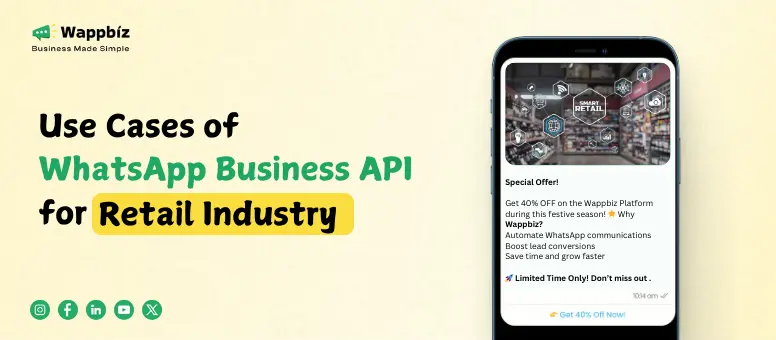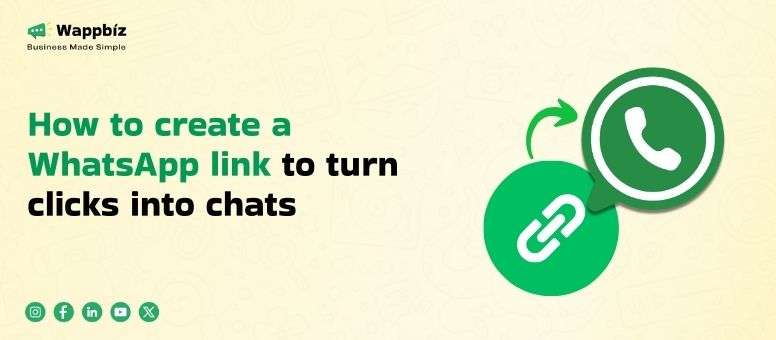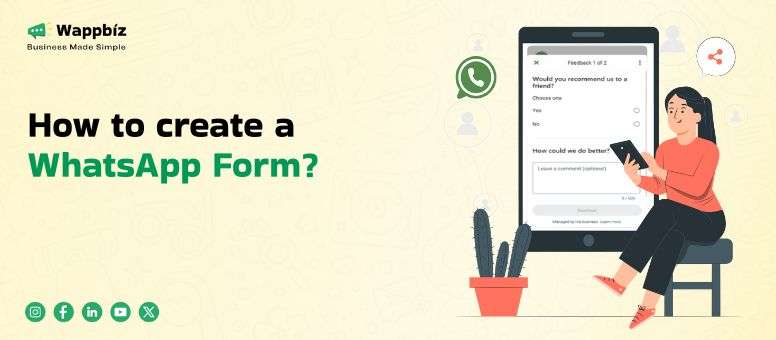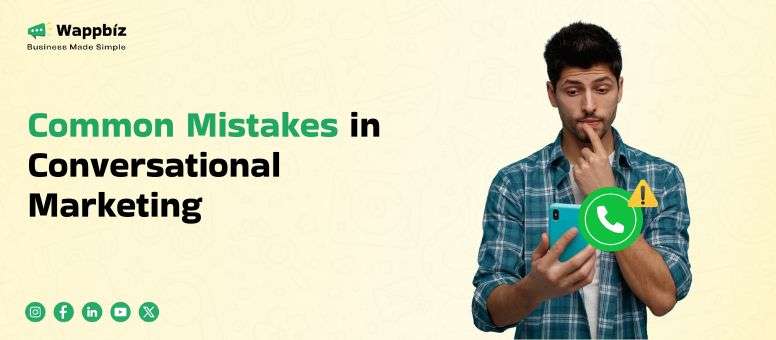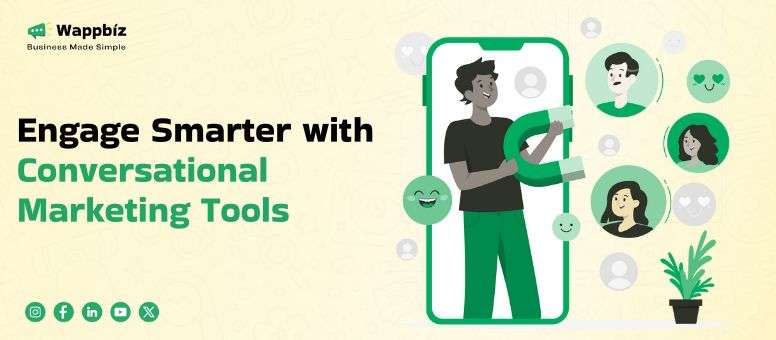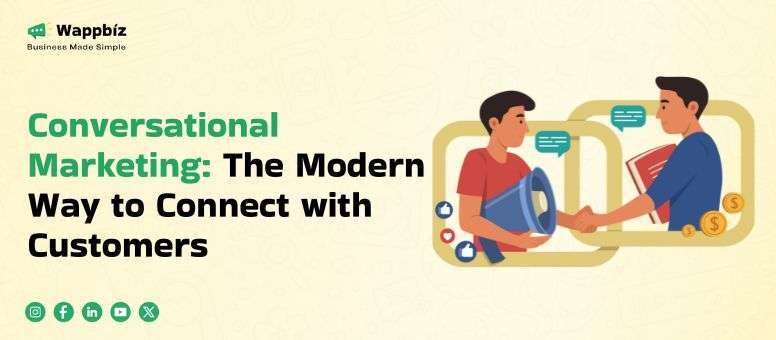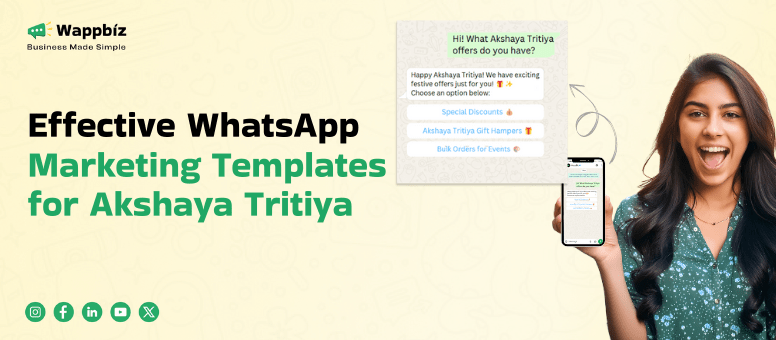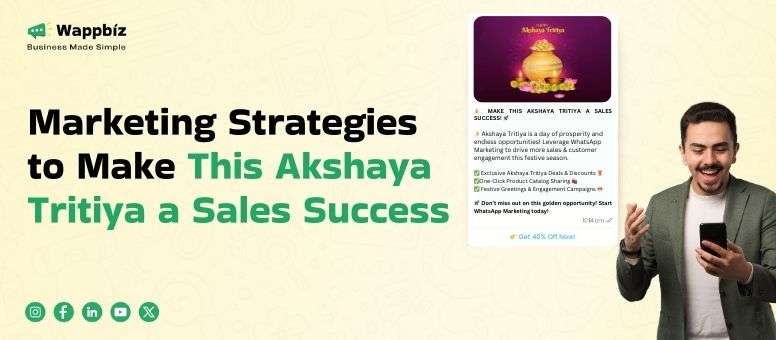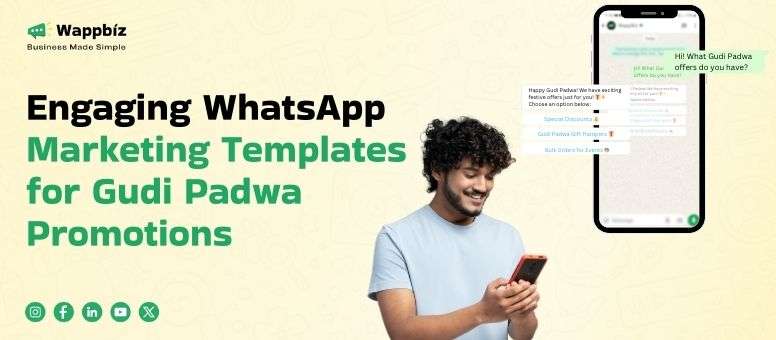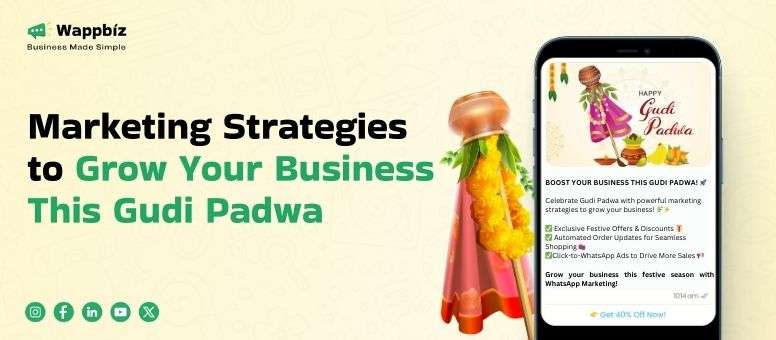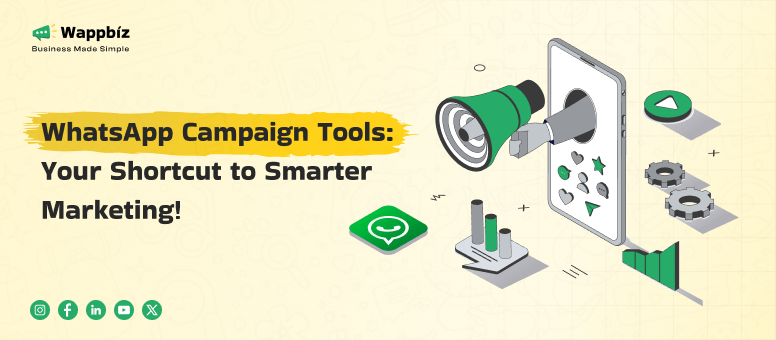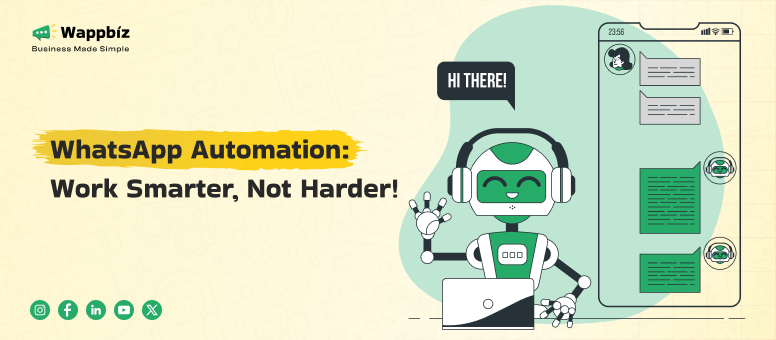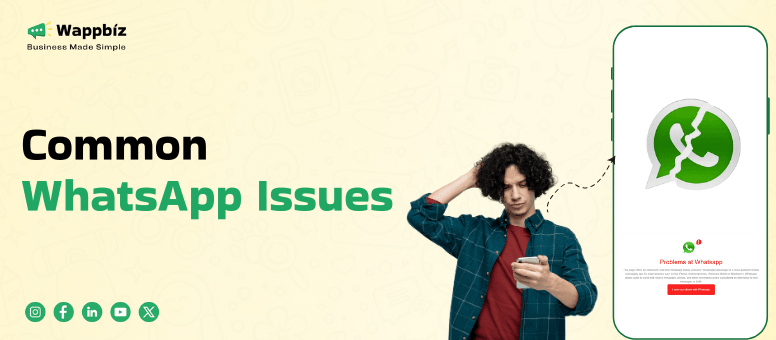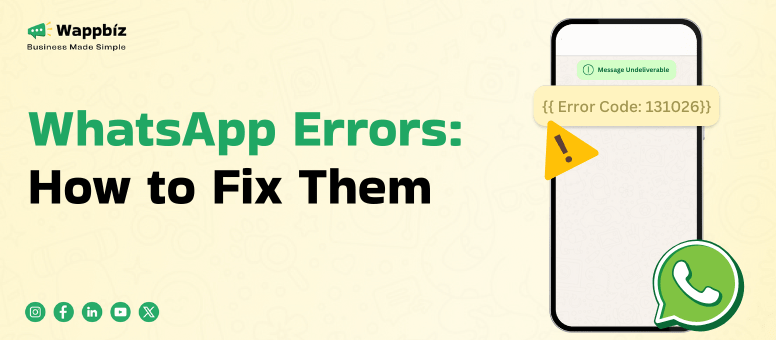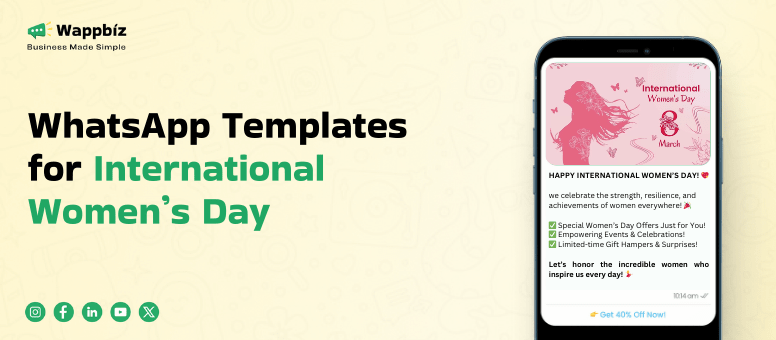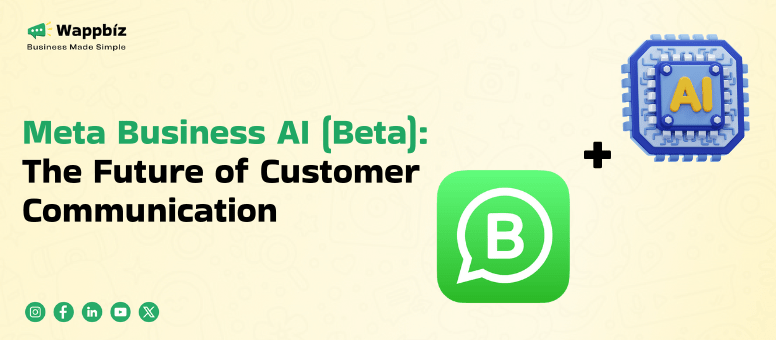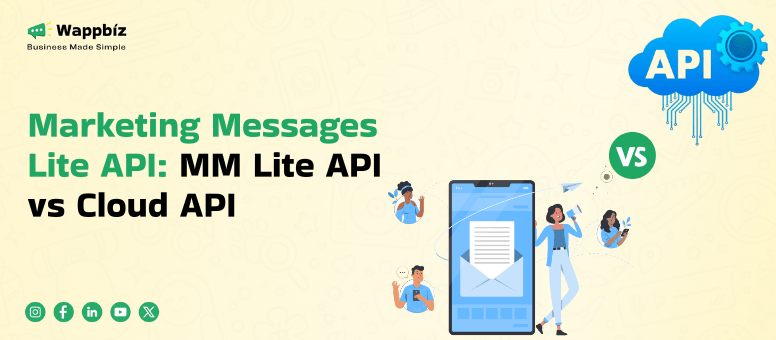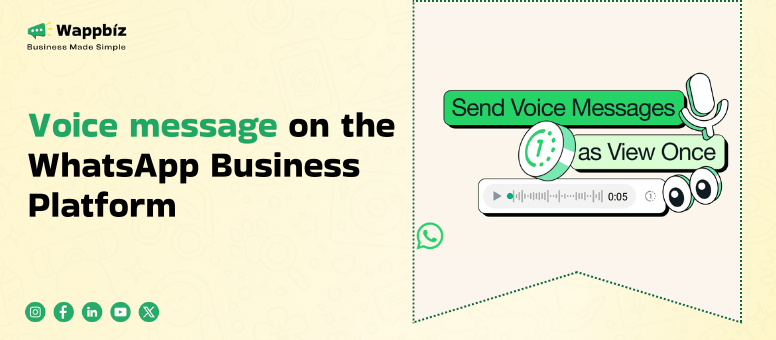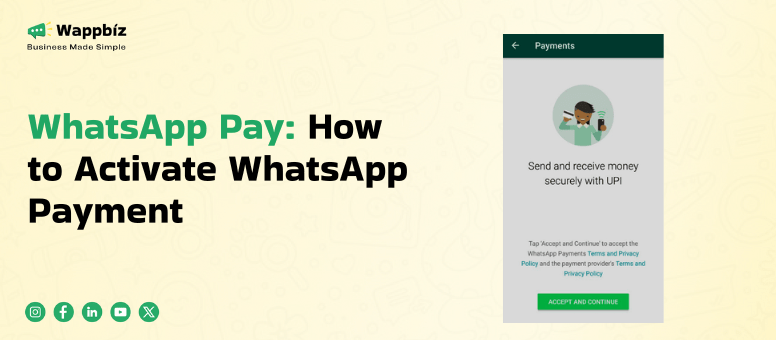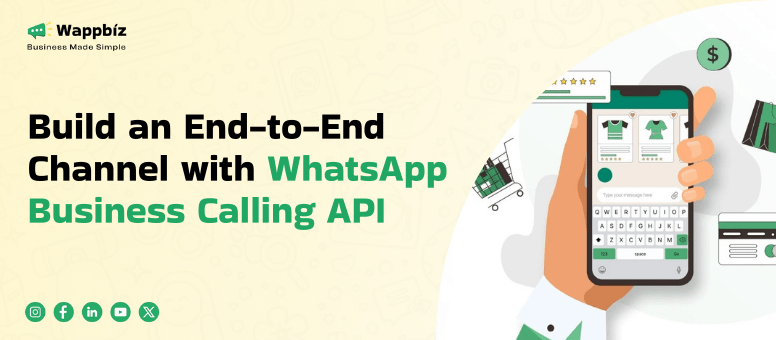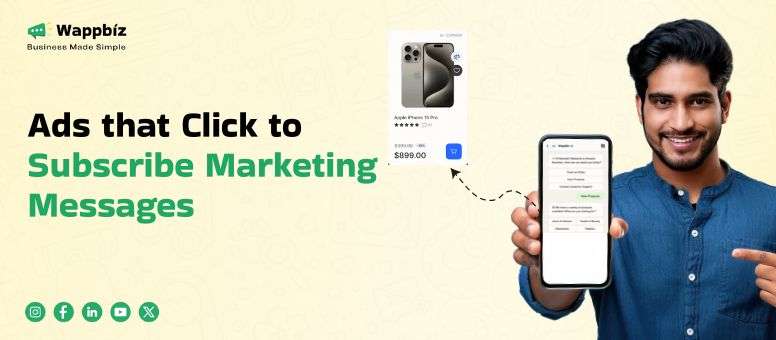The retail industry faces an unprecedented opportunity to form instant relationships in a world where customers expect instantaneous access to information. From allowing customers to track their orders in real-time, receive notifications for products back in stock, or ask questions 24/7, the WhatsApp Business API provides retailers direct access to the customer. Solutions like Wappbiz become key in making these interactions possible, efficient, automated, and impactful. Imagine always seizing the opportunity to update a customer or provide support through the platform that your customers regularly use. Without any further ado, here are the top 20 ways in which the WhatsApp Business API is transforming retail.
Why WhatsApp Business API is Important for the Retail Industry
In the retail sector, customers expect rapid responses with personalized experiences and seamless service. The WhatsApp Business API can help satisfy these needs with on-demand support through WhatsApp Automation and WhatsApp Chatbot functionalities. It allows retailers to communicate with customers about product launches, process orders, track deliveries, and manage post-purchase support, all over a channel that consumers already interact with on a daily basis. The WhatsApp API is one such retail solution, providing an edge over the competition through trusted and reliable communication from query handling to fostering loyalty.
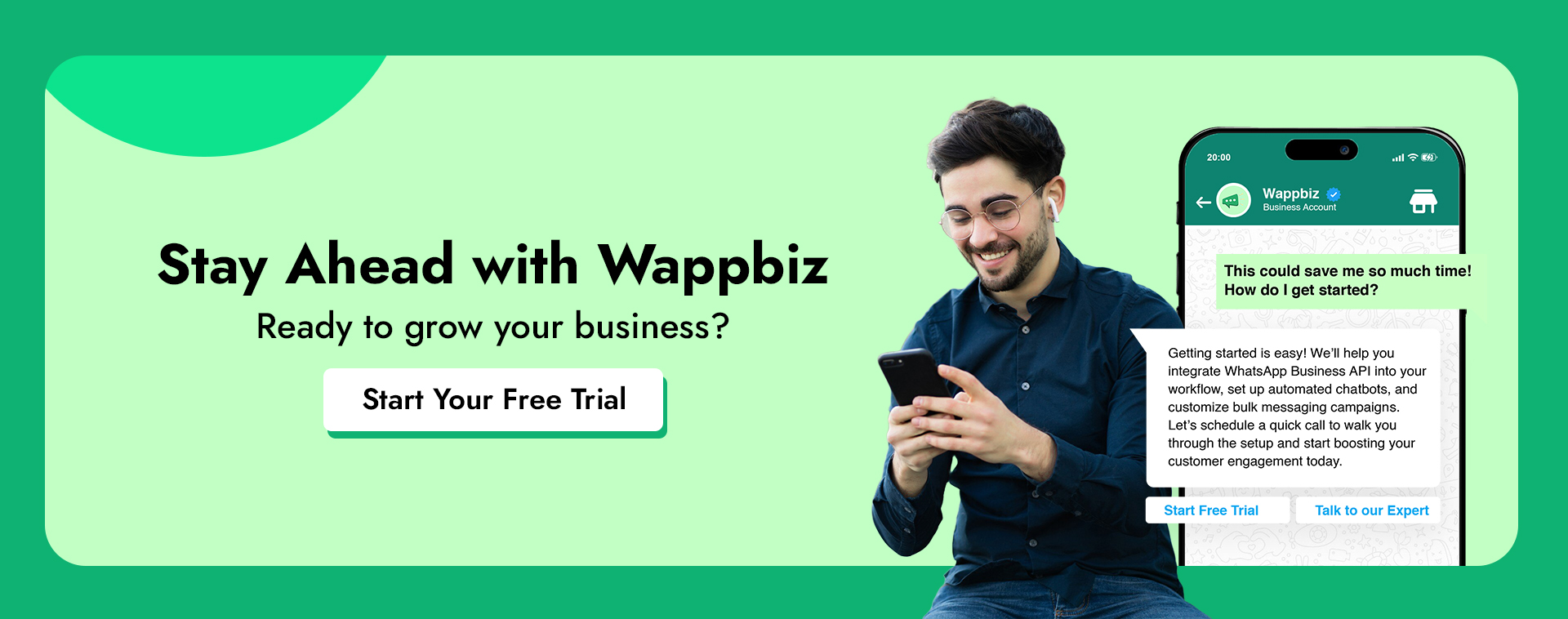
Top 20 Use Cases of WhatsApp Business API for Retail Industry with Examples
1. Order confirmation messages
Order confirmations assist in reassuring customers about the receipt and processing of their orders. Retailers can use the WhatsApp Business API to automate confirmation messages instantly after a transaction.
For example, when a consumer orders an outfit from an e-store, they receive a WhatsApp message detailing their order, the estimated date of delivery, and an order ID. This confirmation not only instills confidence in the customer’s purchase but also provides a more easily accessible record of the transaction, all without requiring instant access.
2. Real-Time Order Tracking
One of the most demanding features for e-commerce is order tracking. Via the WhatsApp API, retailers can share real-time tracking information, right from dispatch until delivery.
For example, as soon as the order shipped, the customer would receive a WhatsApp message in which they could track their package live via a tracking link. Every status update, such as “Out for Delivery” or “Delivered,” keeps consumers informed, reducing customer support inquiries and enhancing their experience by aligning their expectations.
3. Delivery notifications
WhatsApp Automation lets retailers ping customers as soon as their products are out for delivery, along with an ETA and the details of the delivery agent.
For example, when a customer orders electronics and receives a notification on their device stating that they should receive their package between 2–4 PM. These alerts help customers prep in order to receive their orders, reducing missed deliveries and improving user experience. With real-time notifications, customers know exactly where their order is and how long they need to wait before it gets there, thus making for a more reliable experience.
4. Stock Availability Alerts
Allow customers to sign up for notifications when something is out of stock but still in a high-demand category. You can receive automatic alerts via the WhatsApp API as soon as the item becomes available.
For example, If a customer requests the restocking of a popular smartphone throughout the day, they will receive an alert as soon as it becomes available again. This helps retailers collect sales from consumers who are interested in purchasing but are unable to follow through, converting potential lost sales into direct engagement by reaching out to them during the window of opportunity.
5. Customized Product Suggestions
With WhatsApp marketing, you can recommend suitable products to customers based on their past purchases or browsing history.
For example, if they bought a fitness tracker, you could show them recommendations for workout clothes or accessories. Such personalization increases the likelihood of repurchase, which, in turn, fosters customer loyalty. Recommendations have a more intimate and face-to-face vibe using WhatsApp, as the customer feels valued and engaged with products that may interest them.
6. Abandoned Cart Reminders
Retailers can utilize the WhatsApp Business API to remind customers about items that they have left unpurchased in their carts.
For example, if a consumer leaves shoes in their cart, they receive a WhatsApp message encouraging them to complete their purchase, sometimes with a discount. This prompt reminds you to make this forgotten product a priority, and it helps improve the conversion rates of your abandoned carts. Use WhatsApp as a relaxed method to remind customers about their cart.
7. Announcements about Seasonal or Flash Sales
WhatsApp marketing is ideal for seasonal or flash sales where you can create urgency in your audience.
For example, customers may receive a WhatsApp message announcing a “24-Hour Flash Sale” on specific products. This tactic can be effective in spurring real-time action, especially if you provide a limited-time offer. WhatsApp, an instant messaging platform, can effectively promote timed sales by directly notifying customers.
8. Scheduling appointments for in-store services
For those retailers who provide personalized in-store services, like styling sessions or skincare appointments, the WhatsApp API makes it easier for shoppers to book at-home visits. It allows customers to book appointments directly via WhatsApp, as well as confirmations and reminders, alongside rescheduling if needed.
For example, a customer booking a styling session would receive simultaneous reminders 1 and 2 hours prior to her appointment. Such hybrid systems ensure appointment adherence and reduce no-shows, making in-store experiences much better.
9. Customer Feedback Collection
Retailers can easily collect some useful customer insights with the help of WhatsApp Chatbot by sending post-purchase surveys. Retailer sends its customers a short survey on WhatsApp after they have received an item to find out how the experience was.
For example, a basic request to rate an item just provides retailers with insight into customer satisfaction. WhatsApp is the easiest and most convenient way to get feedback from customers, which not only increases response ratios but also transforms your insight into action and provides enrichment in service for retailers.
10. Return and Refund Updates
The WhatsApp API can streamline the return and refund process by providing continuous updates. Customers receive real-time updates on the receipt and processing of their refund as soon as they initiate their return.
For example, We notify the customer when their dress arrives at the warehouse and again when we process the refund. Customers can trust that we will promptly address their requests due to this transparency.
11. Loyalty Program Reminders
Retailers can use WhatsApp marketing to remind loyalty program members to stay engaged.
For example, a message could tell customers where they stand in regards to their available points or show them the next rewards they can cash in on. So, a customer with 800 points might receive a message like “You’re just 200 points away from earning $10!” The reminders prompt your customers to participate in the program and persuade them to shop more in order to reach the rewards.
12. Product Launch Announcements
Retailers can make direct announcements to customers about exciting product launches using the WhatsApp Business API. If, a brand launches a new series of sneakers, they can drop WhatsApp messages to customers letting them know about exclusive or early access. Product launch notifications are informative emails that keep customers in the loop, they make your customer feel special and act quickly (because who wouldn’t like being the first to know about a new product?), especially if it’s a loyal one.
13. Invoice and receipt sharing
The WhatsApp API also enables retailers to send digital receipts and invoices, which is handy for customers.
For example, upon making a purchase, customers get an itemized receipt through WhatsApp, which is simple to access, review, or submit for reimbursement. It’s an eco-friendly alternative to minimizing printed receipts and offers customers a reliable means of keeping track of purchases, particularly handy for regular shoppers.
14. Support for products and troubleshooting
With WhatsApp Chatbot, retailers can offer instant product support, helping customers resolve issues quickly.
For example, if a customer has some questions about setting up the chair they just purchased, he/she can message the retailer and receive instructions through the chatbot on how to set it up step by step. Instantaneous support in real time ensures customers receive the necessary assistance instantly, thereby eliminating frustration and enhancing their product experience.
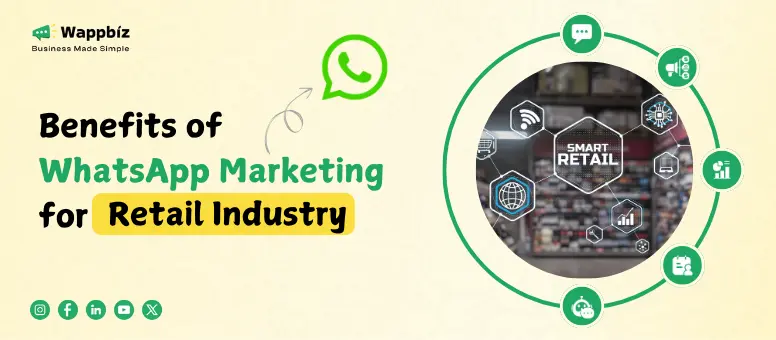
15. Gift Ideas and Notifications
For events such as birthdays, holidays, or anniversaries, use WhatsApp marketing to offer personalized gift information.
For example, a jeweler could send an email with gift suggestions for Mother’s Day and common gift options. Gift ideas spark customers’ minds and make it simple for everyone to shop, resulting in higher sales during busy retail seasons. Thoughtfulness strengthens customer relationships, personalization of these messages around specific dates
16. Store Locator Assistance
With the use of the WhatsApp API, every retailer can easily help a customer find the nearest store.
For example, when someone asks for store information, we send them a WhatsApp message indicating the closest location and route. Customers who wish to visit a physical location, particularly those who are unfamiliar with the area, can benefit from this. Retailers enhance convenience and boost footfall at stores by simplifying access to store locations.
17. Installments Payment Reminders
For retailers who allow their customers to pay in installments, the WhatsApp Business API sends a reminder before the payment is due.
For example, a typical WhatsApp alert that notifies a customer of the amount and due date two or three days prior to payment. This avoids missed payments and keeps the customer experience intact. For high-ticket items purchased through payment plans, timely reminders keep customers informed and organized.
18. Bookings for out-of-stock items
Ecommerce retailers can also use WhatsApp Chatbot to allow customers to reserve items that are out of stock and provide a notification when the item is back.
For example, when a popular product sells out, customers can reserve it through WhatsApp and receive priority access when it becomes available again. It creates some excitement and customer engagement while cutting down on lost sales and giving customers who actually want the item a chance to get it.
19. Opportunities for cross-selling and up-selling
Recommendations for Add-On purchases over WhatsApp Automation help the retailers boost average order values.
For example, recommending premium coffee beans or a mug set to a customer who just purchased a coffee maker. Retailers frequently use this information to provide product suggestions because these personalized recommendations typically result in more items purchased, allowing retailers to reap the benefits of increased sales. WhatsApp cross-selling is one-on-one and contextual, catching customers when they’re most likely to buy.
20. Real-Time Customer Support
WhatsApp Chatbot will allow retailers to provide customer support around the clock, answering common queries such as order tracking, return policies, or product information.
For example, a customer who asks about the status of their order receives a real-time reply through the bot. Such live assistance also brings down the waiting time, which leads to an enhanced customer experience and reduced inflow of tickets for our agents.
Conclusion
In the retail business, you have to interact with customers as quickly, personally, and efficiently as possible. The WhatsApp Business API can help retailers provide seamless communication, which increases customer satisfaction and retention. Using Wappbiz for these integrations will help retailers to drive stronger connectivity, optimize their operations, and gain the edge over competitors.
Learn how Wappbiz enables businesses to engage customers in a simple, secure manner. From setup to support, we cover it all!

FAQs
Does the WhatsApp Business API help in boosting sales for retail stores?
Absolutely! Retailers can communicate personalized promotions, special deals, and product recommendations via WhatsApp, encouraging higher purchases.
What is the order management function of the WhatsApp Business API for a retailer?
WhatsApp makes order management simple by enabling retailers to confirm orders, send shipping information, and notify customers when a delivery has occurred.
Is the WhatsApp Business API cost-effective for retail marketing?
WhatsApp is a low-cost solution for retailers to connect with potential buyers and follow up on inquiries at little cost.
Can the WhatsApp Business API assist with customer support in the retail industry?
Definitely! Using WhatsApp, retailers can address queries, provide complaint refunds, and support to create a seamless shopping experience.
How secure is WhatsApp for customer handling in retail?
WhatsApp Business API comes with end-to-end encryption, ensuring all your customer communication and data is safe and secure.
How can retail brands use the WhatsApp Business API to drive customer loyalty?
Retailers have the ability to send loyalty rewards, promotions exclusively for their customers, and even personalized messages over time.
How does the WhatsApp Business API help with retail feedback collection?
WhatsApp offers a new platform that allows retailers to easily send feedback requests, aiming to enhance their offerings and improve customer satisfaction.
How beneficial is WhatsApp for retail promotion of seasonal sales and product launches?
Retailers are able to communicate relevant information pertaining to new arrivals, short-term sales, and seasonal discounts directly within WhatsApp.
How can a WhatsApp Business API make the in-store shopping experience better?
Retailers can also enrich the in-store experience, enabling product availability, personalized recommendations, and immediate assistance over WhatsApp.

